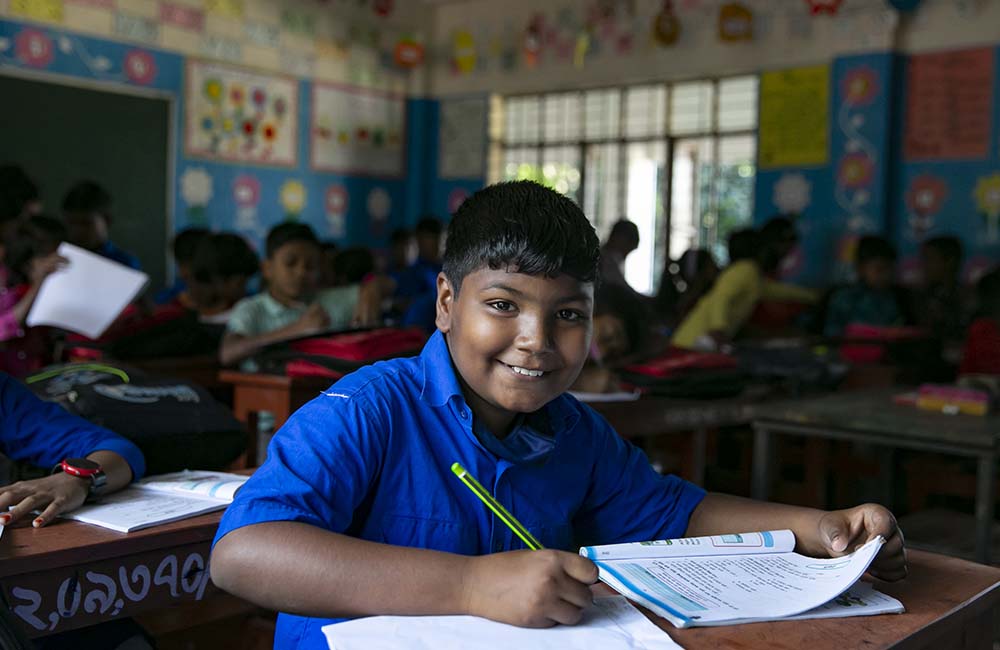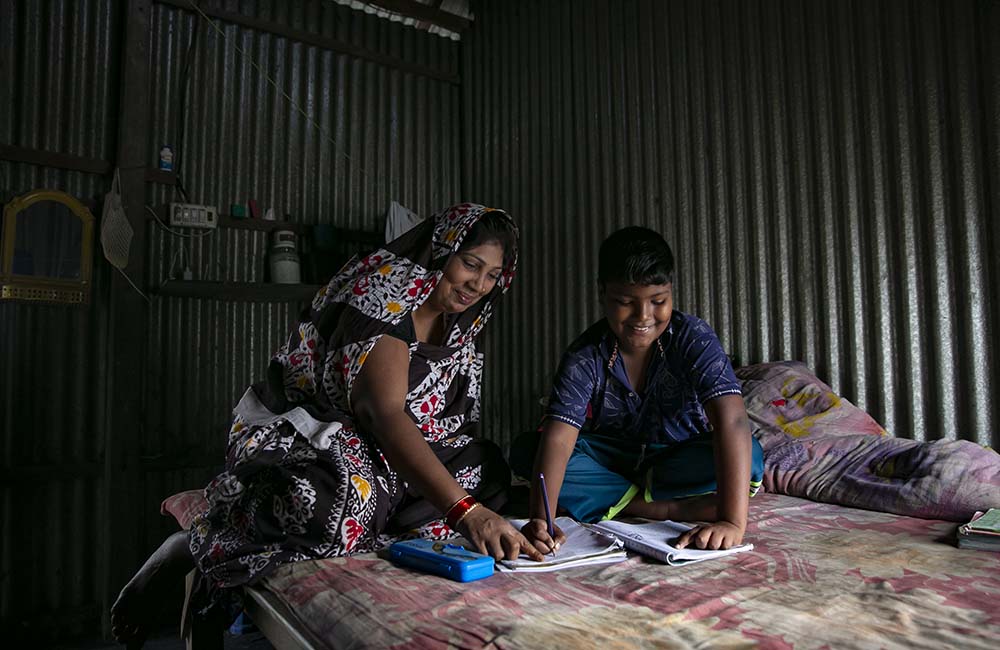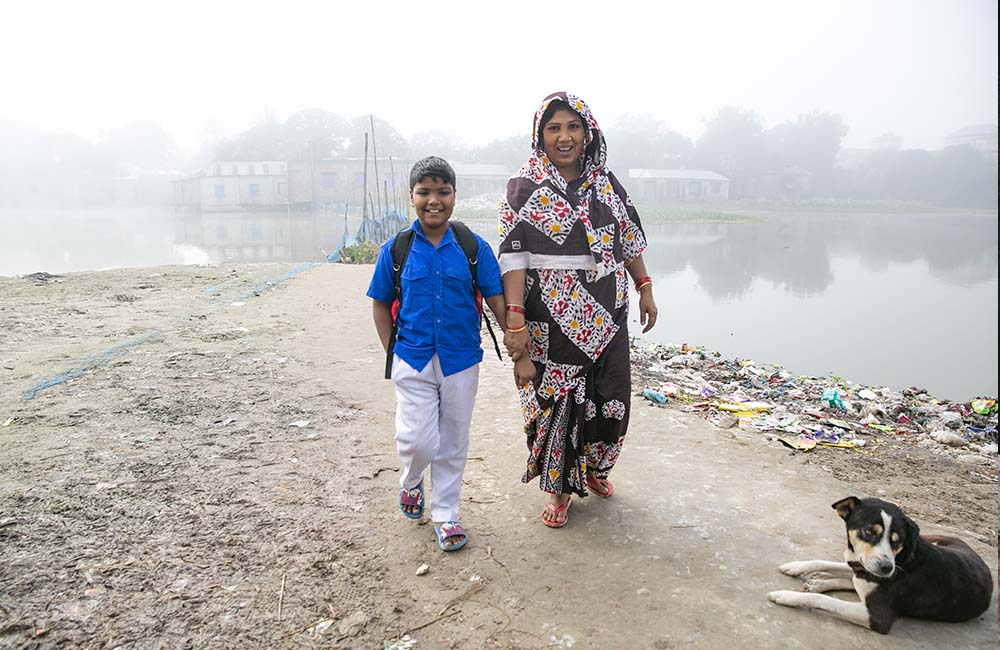Providing education and opportunity in Bangladesh
Sohan* is 9 years old, he loves animals, adores his mother’s cooking and dreams of becoming a police officer when he’s older. Together with his mother and older brother, he lives in the Rajbari District, one of Bangladesh’s most dangerous and economically challenging neighbourhoods. Due to the region’s large sex work industry, children are at risk of being drawn into harmful forms of employment or being exploited by the drug and trafficking business.
Arnima*, Sohan’s mother, struggles to provide for her children as she only earns USD $2.50 a day. Their situation became even more challenging during the pandemic, where schools in Bangladesh were closed for approximately 543 days due to lockdowns.
“I was sad when my school was closed for lockdown. It seemed like I was living a dark and gloomy life,” Sohan told us, “I was so down that I could not concentrate on study on my own. I missed my friends a lot.”
Creating opportunity through education
Save the Children began working in the Rajbari District of Bangladesh over 20 years ago. With partner organisations KKS (Karmojibi Kallyan Sangstha) and MMS (Mukti Mahila Samity), we established a primary school and an early childhood centre to improve the lives of children by providing access to quality education. Over the last two decades the schools have successfully engaged with local secondary schools and contributed to a decrease in the dropout rate for secondary-school students.
Arnima heard about the work Save the Children was doing in the area about five years ago. She started sending Sohan to the Save the Children pre-school and he is now attending the primary school.
“I love to go to school. I can study and play with my friends. Bengali and Maths are my favourite subjects. I love painting and reading story books,” Sohan said.

Sohan enjoying the return to in-person classes.
Adapting crucial support during lockdowns
When COVID-19 forced schools to close and put pressure on Sohan’s family, we created a response plan that adapted education activities to support children’s learning from home. This included connecting children to government-led remote learning programs and undertaking home-based teaching sessions.

Arnima helping Sohan with his remote school work.
Save the Children also provided families like Sohan’s with food assistance and cash transfers during the lockdown to ensure they could support themselves during this extremely challenging time.
“Life was like hell during the lockdown,” Arnima told us, “we could not earn anything. We survived on the relief we received from different organisations like Save the Children.”
Protecting children with a holistic approach
To ensure children in the community are provided with the support they need to reach their potential, our program in the Rajbari District offers a wide range of services. This includes remedial classes for students, a child club for teenagers, literacy and maths classes for parents, positive parenting sessions, training for teachers, healthcare and immunisation services.
“I attend the parenting meetings regularly,” said Arnima, “I learn about positive parenting. I learn how to treat my children well. Now I am much aware about the importance of savings, and I know why education is important.”
Thanks to our incredible supporter community, we’re able to provide these crucial services that enable children like Sohan to dream big and reach their potential.
“When I grow up and become a police officer I will live in my community and will help the people there. I will especially help my family,” Sohan said.

Sohan and Arnima walking to school after lockdown restrictions lifted.
For Arnima, the opportunity for her son to learn and grow in a safe environment gives her hope for the future:
“I could never dream of getting an education and living a dignified life. Now I can dream for a better life for my sons.”
Photo: Save the Children/Allison Joyce.
*Names have been changed to protect identity.